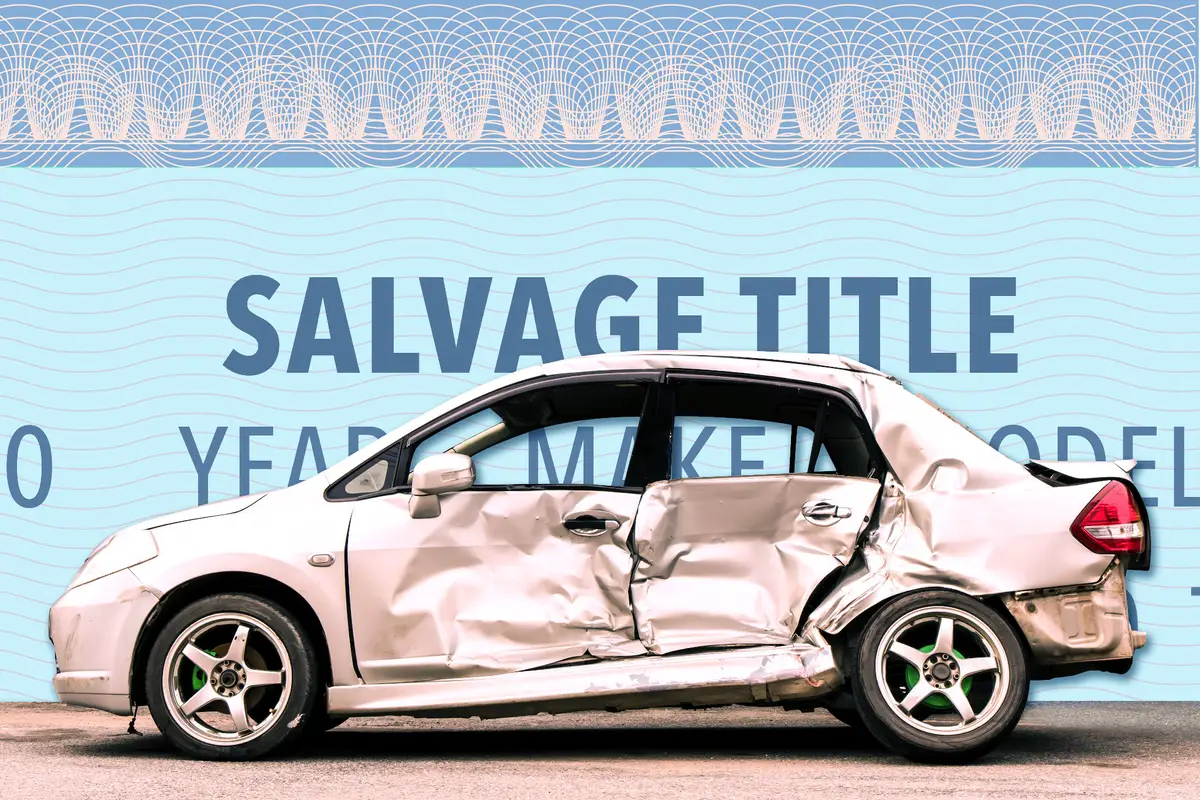What Is a Salvage Title and Should I Buy a Car With One?

A vehicle that has been damaged in an accident or by fire, hail, a flood or another natural disaster and declared a total loss by an insurance company is likely to receive a salvage title.
Related: Video: 10 Ways to Spot a Flood-Damaged Car
The salvage (or “flood” in some states) branding on a title is designed to alert subsequent buyers that they are buying damaged goods, but each state sets its own regulations and laws concerning salvaged vehicles, so every vehicle that has been “totaled” by an insurance company might not have a salvage title.
Laws Vary by State
Moreover, because state laws on vehicle titles vary so widely, a car that was issued a salvage title in one state can be repaired, registered in another state and given a new title that makes no mention of its previous status as a salvage vehicle, a process known as “title washing.”
Some states label vehicles as “junk,” meaning they should not be driven, only dismantled for parts — but these vehicles can wind up back on the road with a clean title, as well.
“There are 50 states and potentially 50 different ways to handle them,” Frank Scafidi, public affairs director of the National Insurance Crime Bureau, told Cars.com. “That is a real thicket.”
How Do Cars End Up With Salvage Titles?
Natural disasters, such as Hurricanes Harvey, Sandy and Katrina, are the main reasons most vehicles end up with salvage titles. Major storms damage tens of thousands of vehicles that insurance companies “total” and typically sell through auctions. Some totaled vehicles are repaired, and the title, as well as the seller, identify them as salvage vehicles (or “rebuilt” in some states). They can be a bargain for an informed buyer who knows what they’re purchasing, though lenders and insurance companies may not want to finance or insure such vehicles.
The bigger problem, Scafidi said, is that many sellers aren’t honest about it, so buyers wind up with a vehicle that was so badly damaged, an insurance company made a financial decision to declare it a total loss rather than pay to fix it.
How Can I Find Out if a Car Has a Salvage Title?
NICB provides a free service called VINCheck that allows consumers to check a vehicle identification number to see if an insurance company has reported it as a total loss (or stolen). Most major insurance companies participate, and Scafidi estimated that it encompasses 90 percent of vehicles.
For a fee, services such as Carfax and AutoCheck, and the National Motor Vehicle Title Information System, also provide vehicle history reports that include salvage titles.
More From Cars.com:
- This Hurricane Season, Learn to Spot a Flood-Damaged Car
- You’re Trapped in Your Car in Rising Floodwaters: Here’s What to Do
- What Car Should You Buy?
- More Advice From Cars.com
Know What You’re Buying
Because a used vehicle — particularly one selling for a price that sounds too good to be true — could have once been declared a total loss, Scafidi said shoppers should have it professionally inspected and check the vehicle’s history.
“An unsuspecting buyer who thinks they’re picking up a good deal can easily buy a bucket of rust just waiting to collapse on the highway,” he said.
Cars.com’s Editorial department is your source for automotive news and reviews. In line with Cars.com’s long-standing ethics policy, editors and reviewers don’t accept gifts or free trips from automakers. The Editorial department is independent of Cars.com’s advertising, sales and sponsored content departments.
Featured stories




